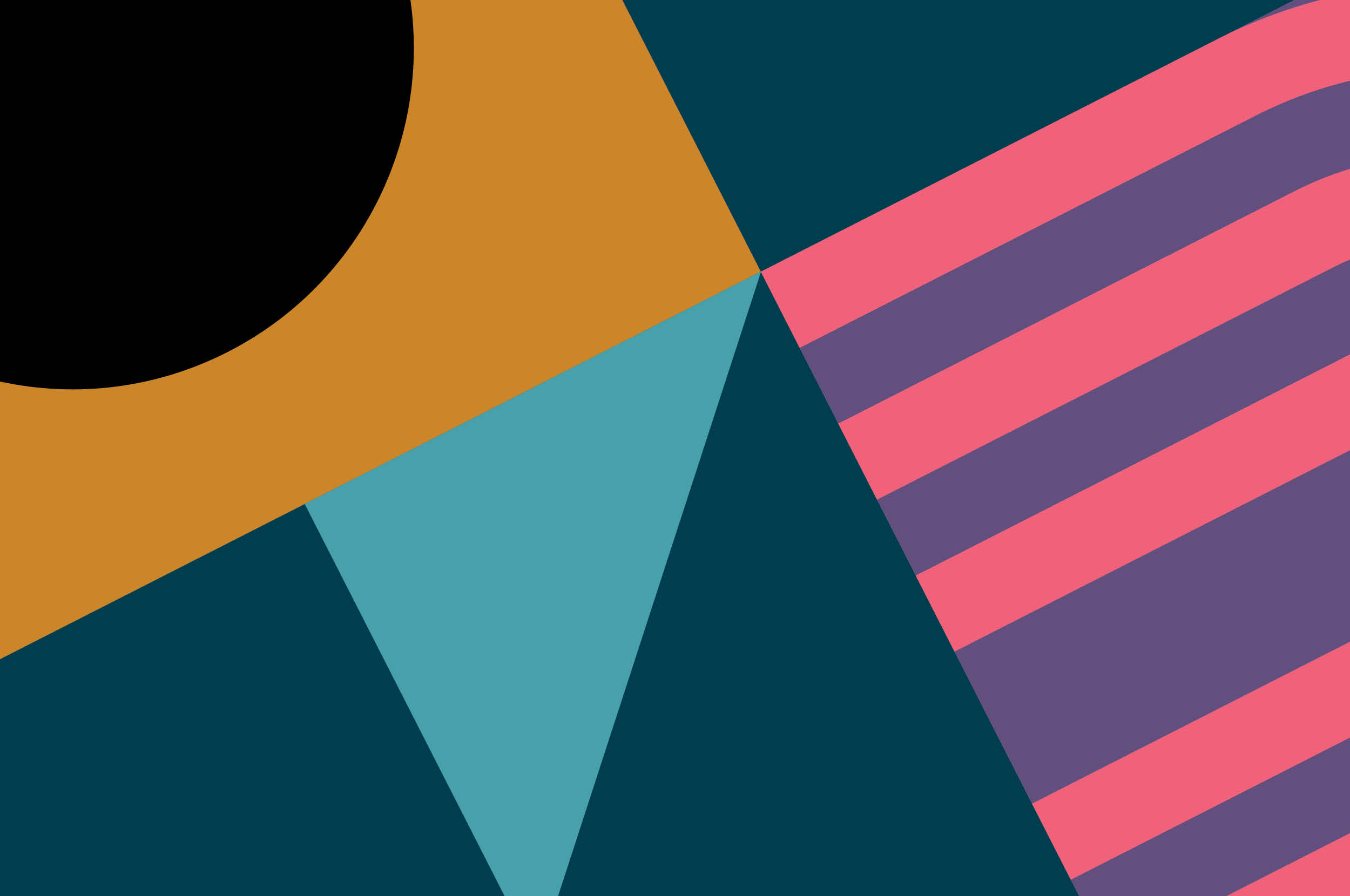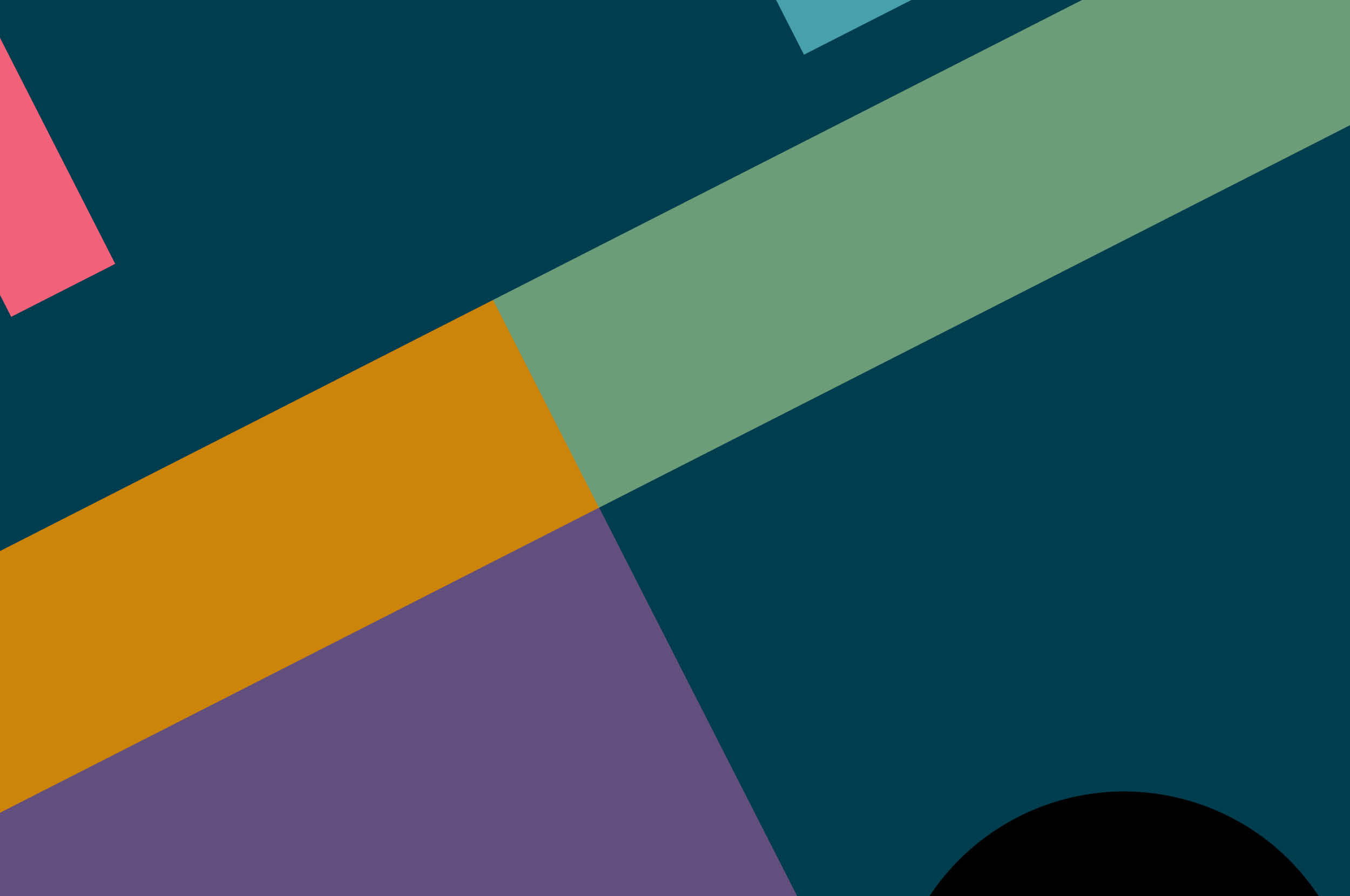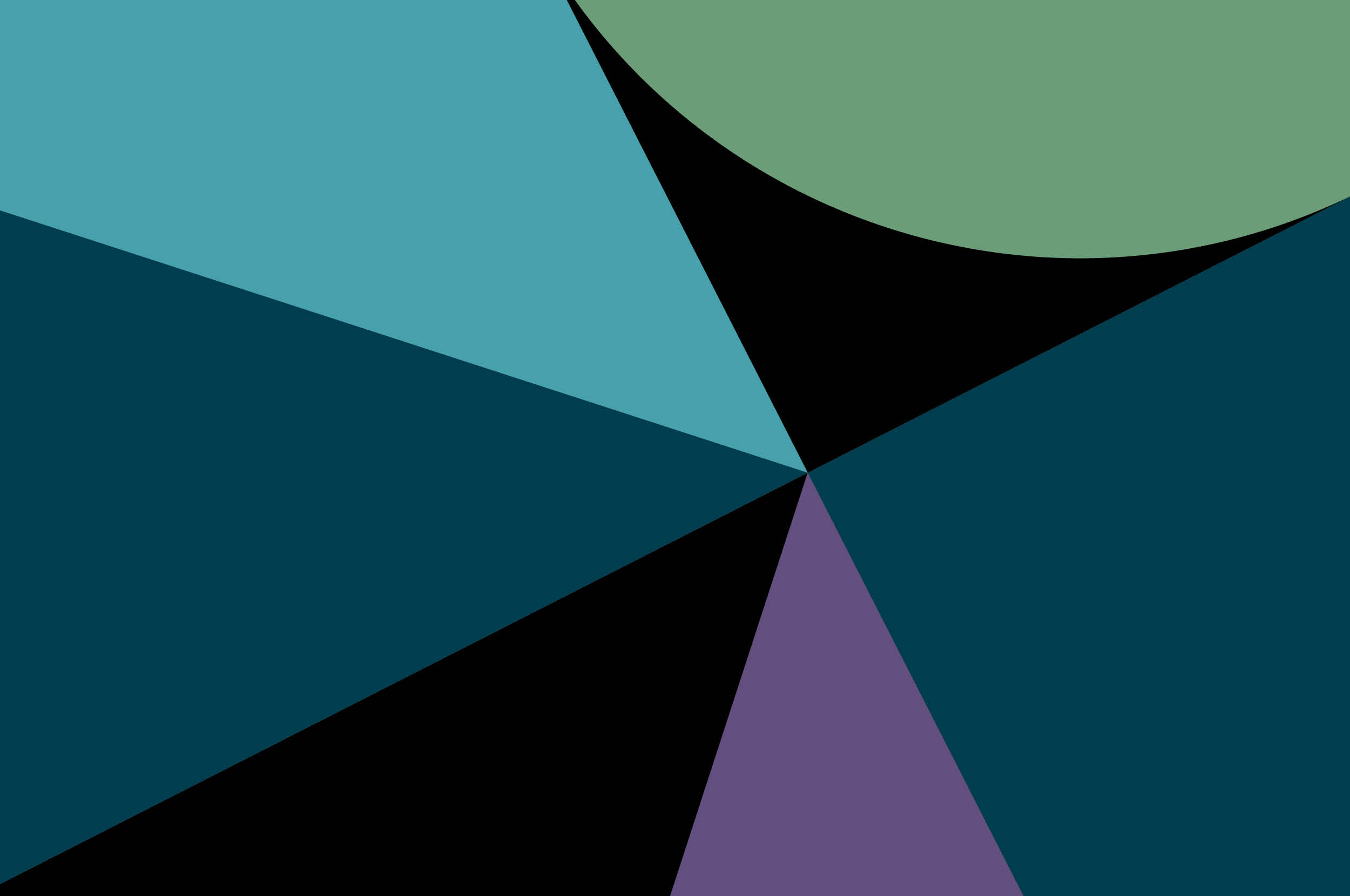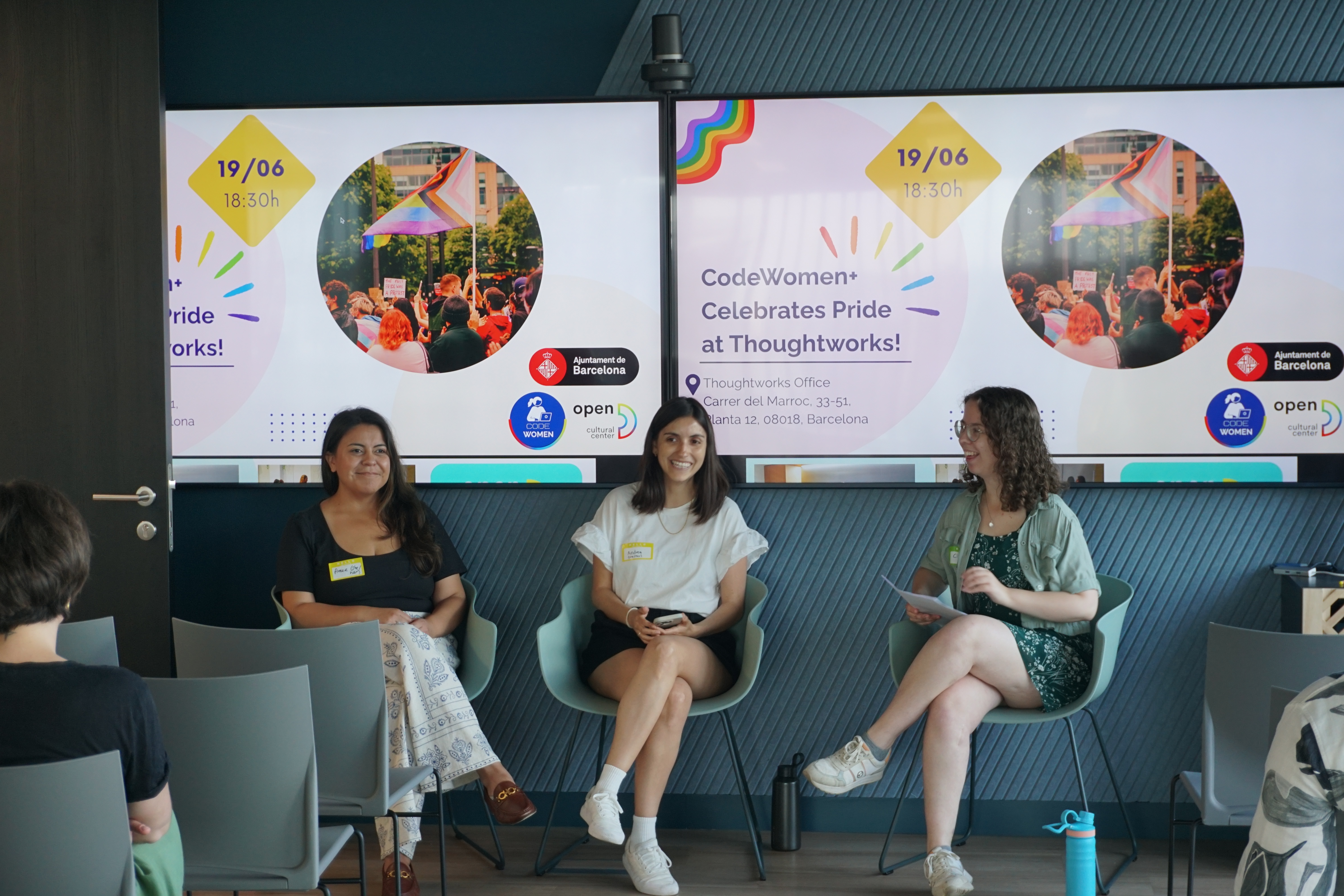

Last month, Thoughtworks proudly hosted CodeWomen+'s annual #Pride event in Barcelona. It was an inspiring experience, bringing together queer voices in tech for a vital discussion on creating truly inclusive environments. A huge shout-out to @Andrea Cuevas, @Sofia Carballo, Channelijne Hulshof, Project Assistant for Code Women and Jun Moyano, Diversity, Equity and Inclusion Manager from CodeWomen, for organizing such an impactful event!
Major takeaways:
Tech is not inclusive by default
Tech is an important space for queer folks to take up space in, offering perspectives that can make the industry more innovative, thoughtful and diverse. If it’s possible for you (legally as well as personally), being open about your sexuality in a hiring process can help assess the company’s openness and support for the LGBTQIA+ community.
Inclusion must go beyond Pride month
Creating safe and inclusive spaces for queer people in tech is not a seasonal effort. It’s something we need to build and nurture every day, in the systems we create and the environments we shape. Leaders living and speaking these values every day is key to setting the right cultural tone.
Layered identities shape how we show up
Queer experiences are not one-dimensional. Identities like immigration, race, neurodivergence and gender all intersect to influence how we navigate the tech industry. Recognizing this complexity helps build truly inclusive spaces.
Community matters
Spaces like Code Women show how powerful community can be. When we come together to share stories, support each other and advocate for change, we can create environments where everyone feels like they belong, especially in a male-dominated industry like tech.
Our discussion highlighted the importance of moving beyond performative Pride and surface-level rainbow logos and toward building workplaces that truly embrace diversity every day. It's about creating environments where everyone can thrive and feel fully seen for who they are.
What made the conversation even more meaningful was the participation from the audience. People asked thoughtful questions and shared their own experiences and perspectives, making the discussion richer and reminding us why community spaces like this matter.
While talking about what it's like to be queer in the tech industry we questioned whether we consider tech a welcoming space. Andrea shared that while her own experience had been mostly positive, that didn’t necessarily mean the industry was inclusive by default. In fact, she noted that she’s faced more barriers due to her gender than her queerness. Coming from the Bay Area (San Francisco, California), I mentioned that while it’s a hub for technology, the industry still tends to be dominated by cisgender white men. Despite this, we both agreed that tech remains an important space for queer folks to take up space in and that our life experiences offer powerful perspectives that can make the industry more innovative, thoughtful and diverse.
We touched on how our identities influence the way we build products and collaborate with others. Andrea reflected on how being a queer immigrant shapes the way she communicates with her team by emphasizing respect, inclusive language and ensuring everyone feels welcome. I shared how my perspective as a queer Latina and neurodivergent person informs how I approach product development, always thinking about accessibility, inclusion and user-centered design from the outset.
We also reflected on the experience of being openly queer during job interviews. Both of us recalled how different it felt interviewing at Thoughtworks, where it was immediately clear that queerness wasn’t just accepted but was actually welcomed. From the start, we felt that the culture was one of openness and inclusion. We both shared that we now make it a point to be open about our queerness early in the hiring process, to help assess whether a company is the right cultural fit. At the same time, we acknowledged the privilege of being able to do that. Not everyone has the economic flexibility to walk away from an opportunity that may not feel inclusive.
Beyond individual experiences, we explored how DEI must be embedded at every level of an organization to truly make a difference. Andrea shared that, in her experience at Thoughtworks, inclusion isn’t just a corporate talking point. It’s part of how teammates interact daily. That consistency shows that DEI isn’t something that lives on a policy page, but a value reflected in the everyday culture. I emphasized the importance of seeing DEI modeled from leadership, not just among individual contributors. When leaders live those values, it creates a ripple effect that makes meaningful change more possible. We both felt that Thoughtworks does a strong job of hiring for cultural alignment, bringing in people who not only have the skills, but who contribute to a supportive and inclusive work environment.
Our conversation was a powerful reminder that while there's still work to be done, there are spaces within tech where people are working hard to build better, more inclusive futures. And it starts with showing up as we are, fully and unapologetically.
Channelijne beautifully captured the event's essence:
"It was a lovely event and opportunity for all of us to come together as a community and I particularly appreciated how open everyone was about their experiences. I really enjoyed moderating the panel and opening up about the intersectionality of queerness with my own disability, also relating to the questions of the audience on the overlap of neurodivergence and queerness in the tech sector. It was great seeing how kind everyone was about people's questions and their own complicated lived experiences. This event had an amazing atmosphere of openness and connection and it is more important than ever to have a space like this."
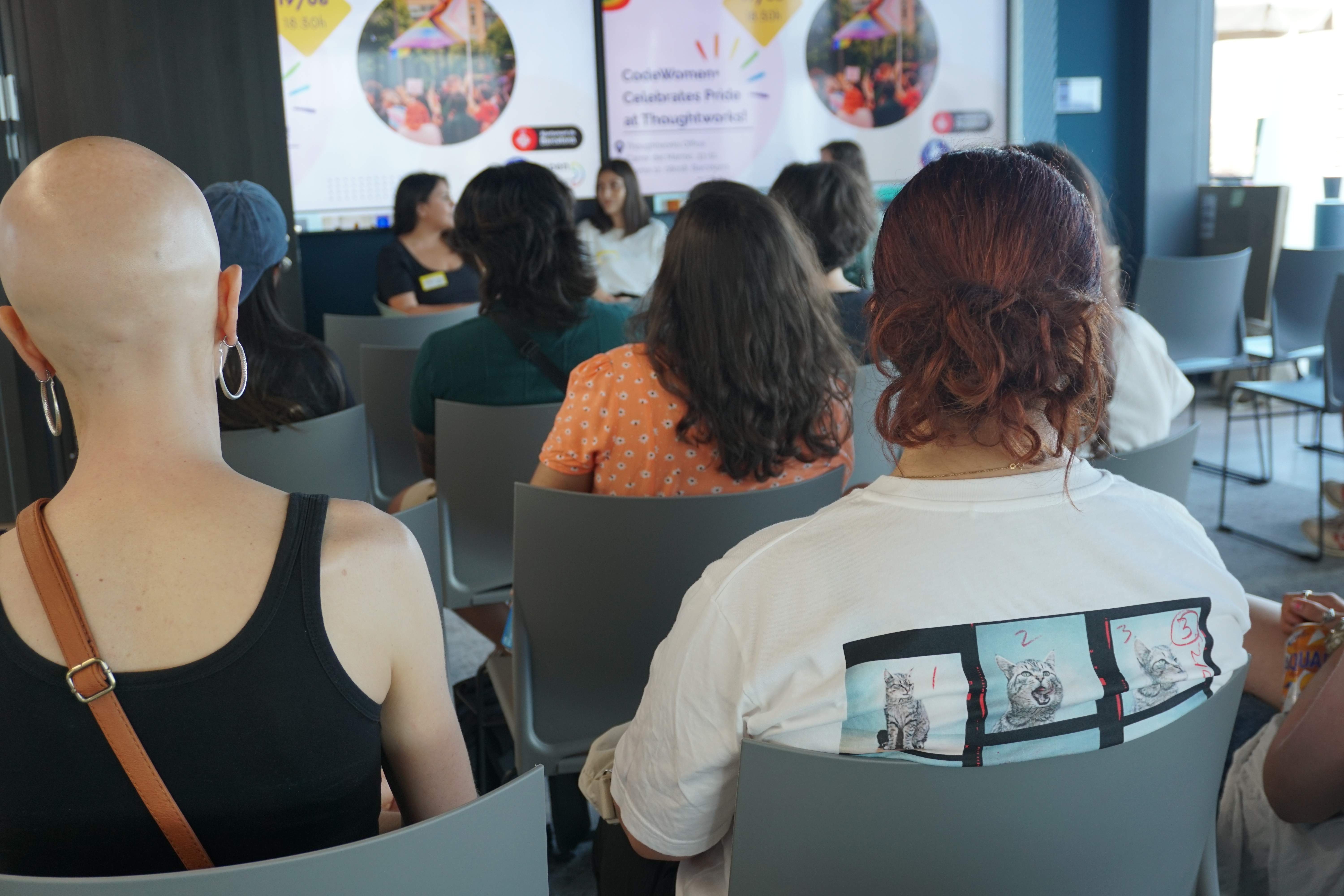

About CodeWomen+
The CodeWomen+ project aims to transform the technology sector to make it more inclusive and diverse. They build a community of women+, by women+, and for women+, organizing orientation, training, and networking activities. Their goal is to facilitate the hiring of women+ in tech and support the implementation of robust diversity, equity, and inclusion plans in companies.
Ways to get involved
If you have a passion for sharing knowledge and empowering others, consider becoming a volunteer with CodeWomen+:
Teacher/trainer volunteer: Share your developer experience directly with students, guiding them through technical concepts and practical skills.
Mentor volunteer: Leverage your HR, training, or project management skills to help students navigate their career paths, and find job opportunities.
To learn more about CodeWomen+ or to get involved, visit their website or connect with them on LinkedIn.
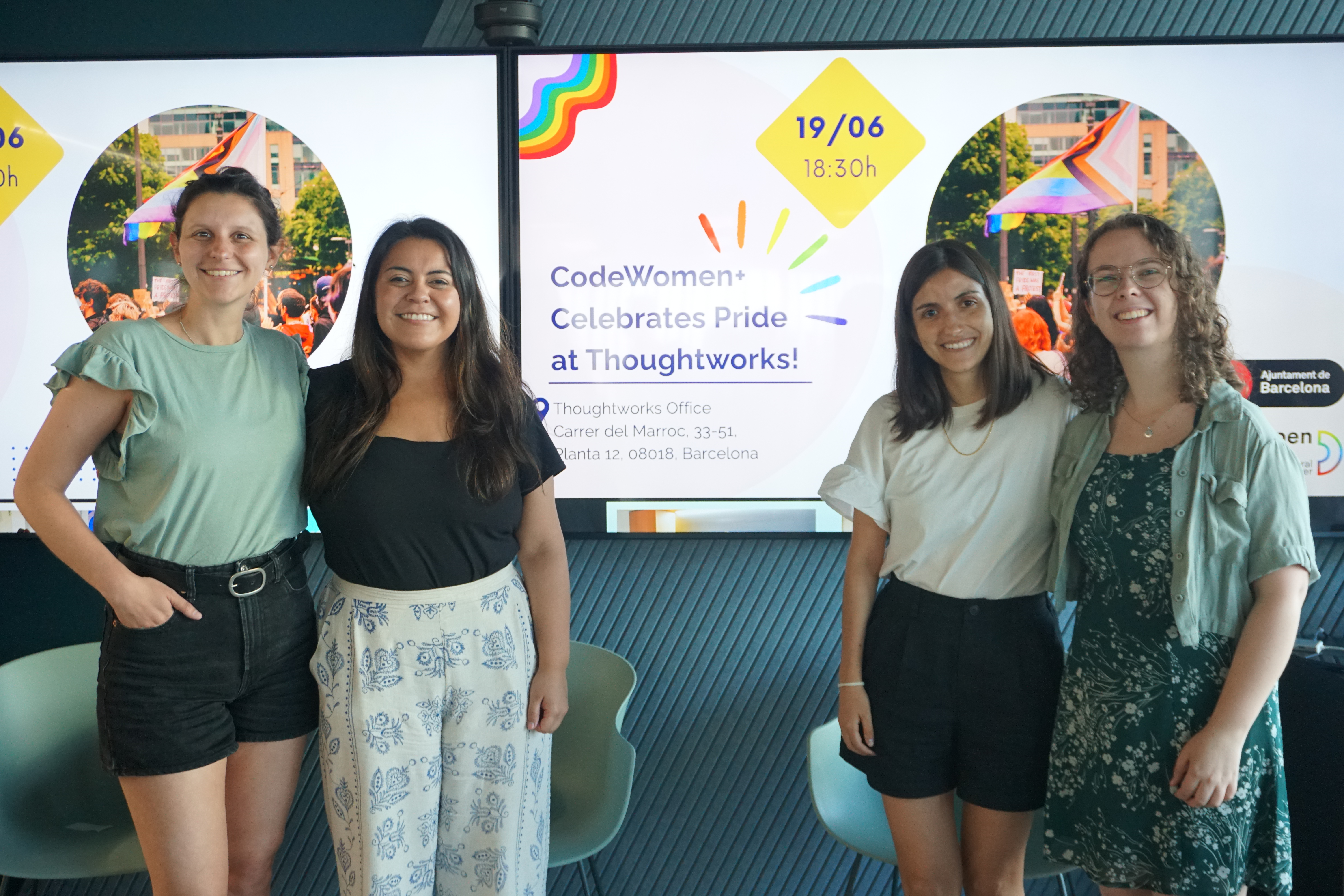

A huge thank you to our event panelists and volunteers for their fantastic collaborative effort.
Disclaimer: The statements and opinions expressed in this article are those of the author(s) and do not necessarily reflect the positions of Thoughtworks.
















